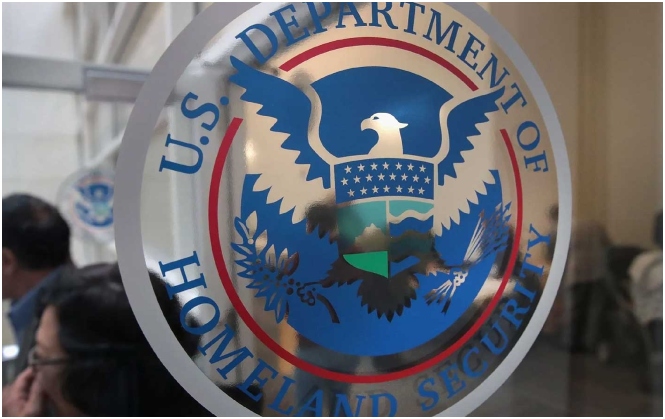In a move sparking legal and humanitarian controversy, the Trump administration has resumed issuing civil penalty notices of up to $1.8 million to migrants who remain in the United States despite having received a final order of removal.
The notices, based on dormant provisions of federal immigration law, are now being mailed to individuals with deportation orders, many of whom are actively pursuing legal remedies or humanitarian protections.
According to documents reviewed by immigration attorneys and legal commentators, the notices cite civil penalties under the Immigration and Nationality Act for “failure to timely depart” following a final removal order. Recipients are warned that failure to pay the massive fines could lead to legal action by the U.S. Department of Justice (DOJ) and additional financial penalties, including:
- Referral to private collection agencies
- Reduction of federal and state payments (e.g., tax refunds)
- Negative credit bureau reporting
- Reduction of the debt to income by the IRS
- Additional administrative costs of up to 32%
One recently issued notice gives recipients just 10 days to remit full payment, or else risk collection escalation within 60 days. These aggressive terms stand in sharp contrast to prior versions, which had included information on possible mitigation and extensions. The latest letters, legal observers say, appear purely punitive.
Legal Authority and Controversy
The administration is relying on 8 U.S.C. §1324d, a rarely used provision enacted in 1996 allowing the Department of Homeland Security (DHS) to impose civil fines of up to $500 per day for each day a migrant “willfully” fails to depart after a removal order. The total can accumulate to a maximum of $1.8 million over five years.
Previously unused, the statute was invoked for the first time during Trump’s first term in 2018 when DHS sought civil penalties against nine individuals seeking sanctuary in churches. Those fines were eventually dropped following legal pushback. The Biden administration later rescinded the policy altogether in 2021.
Yet, according to a May 2025 report by Reuters, the policy has now returned in full force. At least 4,500 migrants have received notices with total penalties exceeding $500 million. Among them are spouses of U.S. citizens, long-term residents, and individuals with active humanitarian claims.
One recipient, Wendy Ortiz a meatpacking worker in Pennsylvania, reportedly received a fine for the maximum $1.8 million—even though she was seeking protection in immigration court. Another recipient is a Mexican woman who has lived in the U.S. for 25 years.
Legal Community Sounds Alarm
Immigration attorneys have expressed grave concern over the lack of due process in these new notices. Unlike prior iterations, the current version provides no information about appeal rights, mitigation requests, or extension procedures.
“This is not just a collections notice,” said one immigration lawyer. “This is an intimidation tactic designed to coerce people into leaving voluntarily, regardless of their pending cases or legal rights.”
Attorneys are advising affected individuals to consult with collections and immigration counsel immediately, warning that ignoring the notice could lead to severe financial and legal consequences.
Some attorneys have also raised constitutional questions about the disproportionality of the penalties, especially against migrants who are actively attempting to regularize their status or have been granted supervised release by U.S. Immigration and Customs Enforcement (ICE).
Strategy or Suppression?

The broader objective of the Trump administration’s move appears to be aligned with its campaign promise of mass deportation. Legal scholars suggest the fines are intended not only to discourage unauthorized stays but also to reduce the administrative burden and cost of physically deporting people—by forcing voluntary departures instead.
The administration faces a significant logistical challenge: while 1.4 million people currently have final removal orders, many are in the process of legalizing their status, have received waivers, or are working legally under orders of supervision.
Moreover, the risk of pursuing the appeal or mitigation process may further expose individuals to detention or forced removal, leading many advocates to accuse the administration of denying migrants meaningful access to justice.
What’s Next?
With the election season underway, legal advocates predict a wave of challenges in federal court. Civil rights groups are expected to contest the constitutionality of the fines and the lack of due process protections. Some attorneys are also exploring **class action lawsuits** on behalf of affected individuals.
Legal observers say the fines, although legally grounded, had never been enforced until 2018 and remain highly susceptible to judicial scrutiny. Whether the administration’s policy will withstand those legal tests remains to be seen.

